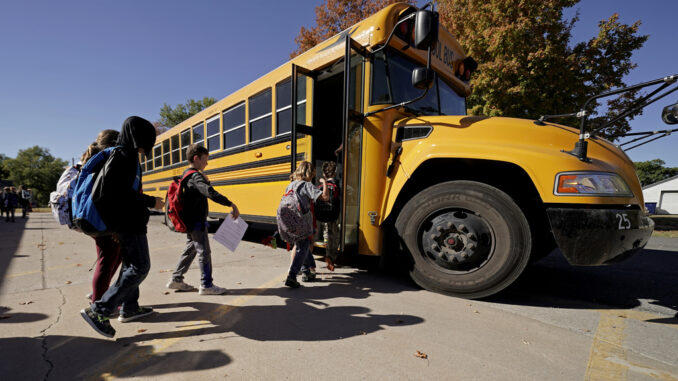
RALEIGH — At a Feb. 12 meeting of the House Select Committee on Education Reform, N.C. State Superintendent Catherine Truitt urged for lawmaker action on student math achievement.
Truitt and Deputy Superintendent Michael Maher gave a presentation to the committee outlining key points to increase proficiency in math and increase application of math in classrooms, as well as generate more student interest in the subject.
The presentation’s title slide states, “It is past time to change the narrative to: “Math is for everyone” and “All kids are math kids.”
“We will need to legislate some of these requirements because when we’re hurting students we need to change the law,” Truitt told lawmakers. “We know what the problems are. We know how to fix them. We will be looking to you all to partner with us in the short session to get this done.”
Truitt’s proposal starts with shaping up Math I by implementing 60 minutes of daily, grade-level math instruction from Kindergarten to 8th grade, using effective and aligned instructional materials, making sure board policies support educators with necessary resources, and keeping both parents and students updated on progress made.
A list of strategies to accomplish those goals were also part of the presentation, as were updates on the next round of revisions to the state’s math standards with the review phase beginning in the 2024-2025 school year.
Truitt’s plan includes use of Patterns for Reaching & Impacting Students in Math (PRISM), leveraging a five-year, $7.86 million Education and Innovation Research Grant (EIR) with the U.S. Department of Education and a partnership with Carnegie Learning and WestEd. The partnership seeks to engage “up to 300 rural 4th grade Math teachers serving as many as 7,000 students, across the state in a unique, ongoing professional learning experience.”
The end goal of PRISM would be giving teachers individualized support in math content and instruction but also to further growth and math proficiency.
Committee co-chair Rep. John Torbett (R-Gaston) indicated the legislature will act during the short session. He also urged that the upcoming scheduled revisions to the state’s math standards be kept “clean and pure.”
“I would trust that when the new standards are developed that we’d keep it both clean and pure, away from the social ills of our time and focus simply on the outcomes,” Torbett remarked.
The plan echoes Truitt’s 2023 statements to North State Journal that she wanted to take on math achievement in a similar fashion as she has with reading over the past two years.
“In order to tackle math, we have to shed some legacy thinking around the importance of math,” Truitt told North State Journal in September 2023. “I would never say to you as an adult, ‘I’m not a very good reader,’ but it’s perfectly acceptable for someone to say, ‘I’m not I’m not good at math.’ That has to change.”
“We are living in a society where we have normalized deficits in basic math skills. And we’re living in a society where jobs by 2030 are going to require a significant amount of computer science, A.I. — all kinds of skills that involve being proficient in math.”
Truitt said increasing Algebra I readiness since it is a “gateway course” to higher math classes was a key goal and that the state needs to mandate an early screener for elementary math similar to that used for reading.



